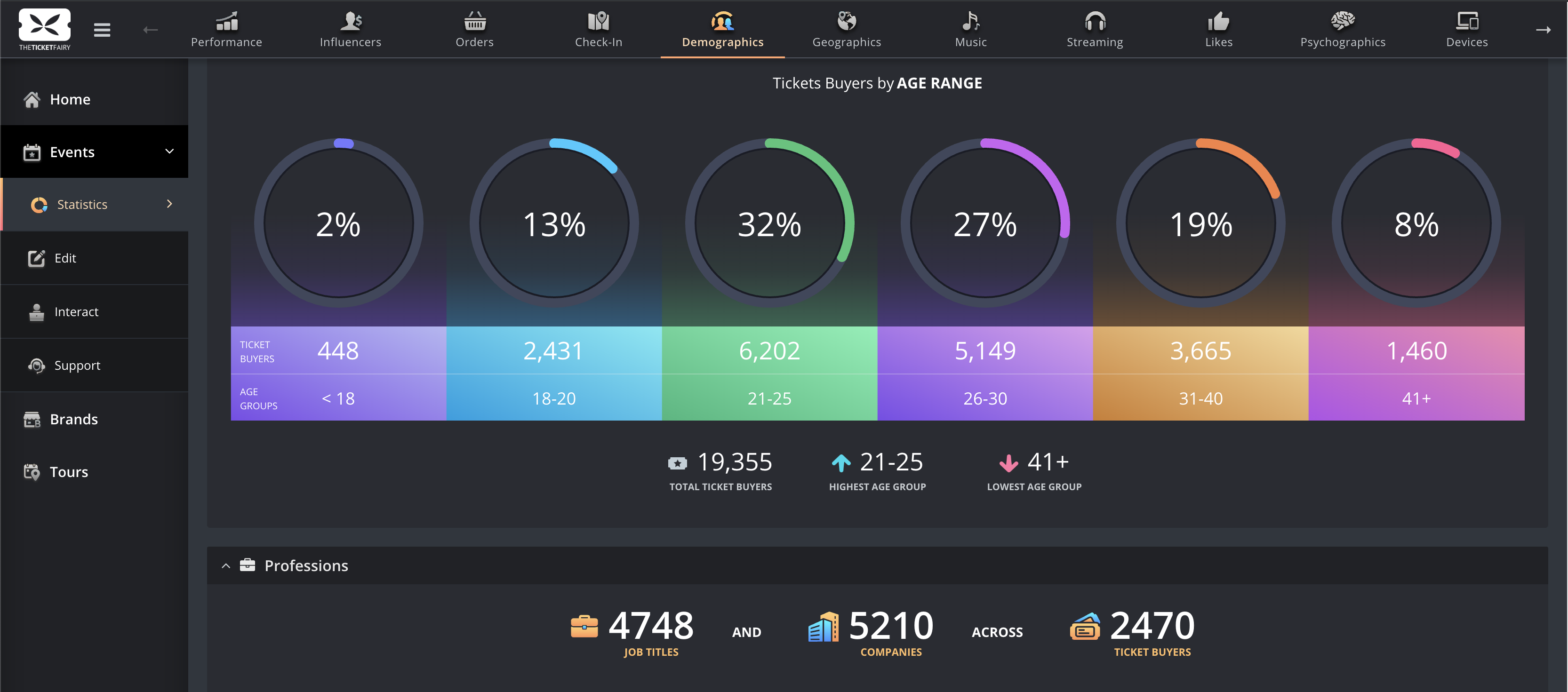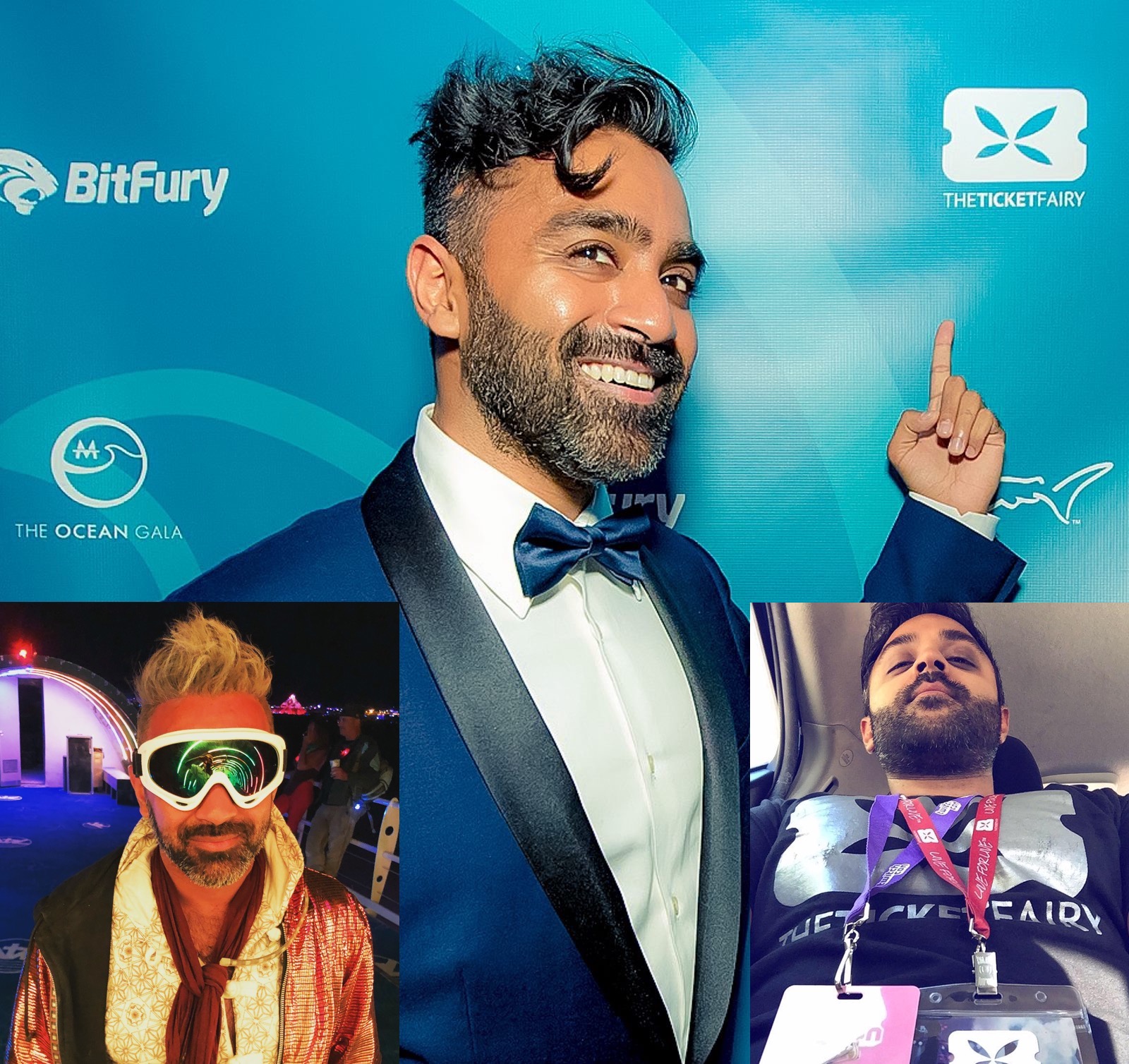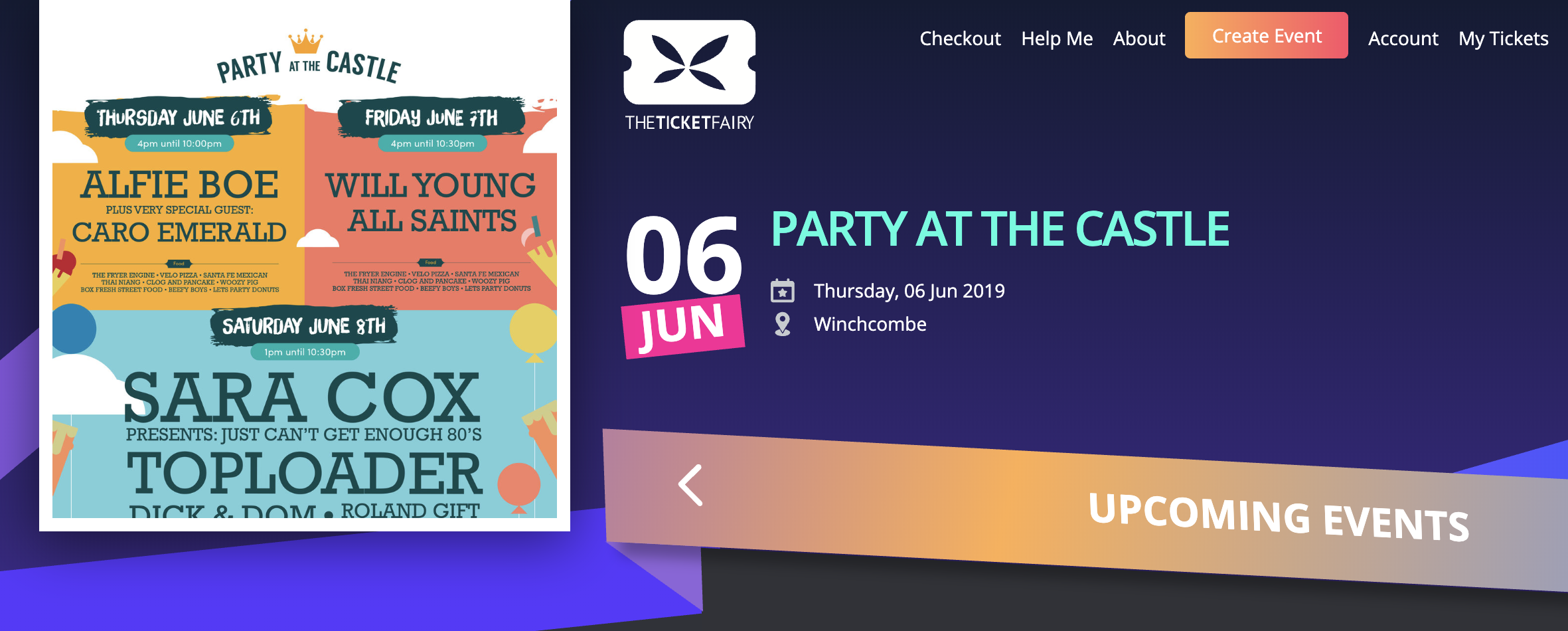The Ticket Fairy is tech’s best hope against Ticketmaster
Ticketmaster’s dominance has led to ridiculous service fees, scalpers galore and exclusive contracts that exploit venues and artists. The moronic approval of venue operator and artist management giant Live Nation’s merger with Ticketmaster in 2010 produced an anti-competitive juggernaut. It pressures venues to sign ticketing contracts under veiled threat that artists would otherwise be routed to different concert halls. Now it’s become difficult for venues, artists and fans to avoid Ticketmaster, which charges fees as high as 50% that many see as a ripoff.
The Ticket Fairy wants to wrestle away from Ticketmaster control of venues while giving fans ways to earn tickets for referring their friends. The startup is doing that by offering the most technologically advanced ticketing platform that not only handles sales and check-ins, but acts as a full-stack Salesforce for concerts that can analyze buyers and run ad campaigns while thwarting scalpers. Co-founder Ritesh Patel says The Ticket Fairy has increased revenue for event organizers by 15% to 25% during its private beta focused on dance music festivals.
Now after 850,000 tickets sold, it’s officially launching its ticketing suite and actively poaching venues from Eventbrite as it moves deeper into esports and conventions. With a little more scale, it will be ready to challenge Ticketmaster for lucrative clients.

Ritesh’s combination of product and engineering skills, rapid progress and charismatic passion for live events after throwing 400 of his own has attracted an impressive cadre of angel investors. They’ve delivered a $2.5 million seed round for Ticket Fairy, adding to its $485,000 pre-seed from angels like Twitch/Atrium founder Justin Kan, Twitch COO Kevin Lin and Reddit CEO Steve Huffman.
The new round includes YouTube founder Steve Chen, former Kleiner Perkins partner (and Mark’s sister) Arielle Zuckerberg and funds like 500 Startups, ex-Uber angels Fantastic Ventures, G2 Ventures, Tempo Ventures and WeFunder. It’s also scored music industry angels like Serato DJ hardware CEO AJ Bertenshaw, Spotify’s head of label licensing Niklas Lundberg, and celebrity lawyer Ken Hertz, who reps Will Smith and Gwen Stefani.
“The purpose of starting The Ticket Fairy was not to be another Eventbrite, but to reduce the risk of the person running the event so they can be profitable. We’re not just another shopping cart,” Patel says. The Ticket Fairy charges a comparable rate to Eventbrite’s $1.59 + 3.5% per ticket plus payment processing that brings it closer to 6%, but Patel insists it offers far stronger functionality.
Constantly clad in his golden disco hoodie over a Ticket Fairy t-shirt, Patel lives his product, spending late nights dancing and taking feedback at the events his clients host. He’s been a savior of SXSW the past two years, injecting the aging festival that shuts down at 2am with multi-night after-hours raves. Featuring top DJs like Pretty Lights in creative locations cab drivers don’t believe are real, The Ticket Fairy’s parties have won the hearts of music industry folks.

The Ticket Fairy co-founders. Center and inset left: Ritesh Patel. Inset right: Jigar Patel
Now the Y Combinator startup hopes its ticketing platform will do the same thanks to a slew of savvy features:
- Earn A Ticket – The Ticket Fairy supercharges word of mouth marketing with a referral system that lets fans get a rebate or full-free ticket if they get enough friends to buy a ticket. Indeed, 30% of ticket buyers are now sharing a Ticket Fairy referral link, and Patel says the return on investment is $30 in revenue for each $1 paid out in rewards, with 10% to 25% of all ticket sales coming from referrals. A public leaderboard further encourages referrals, with those at the top eligible for backstage passes, free merch and bar tabs. And to prevent mass spamming, only buyers, partners and street teamers get a referral code.
- Creative Payment Options – The startup offers “FreeFund” tickets for free events that otherwise see huge no-show rates. Users pay a small deposit that’s refunded when they scan their ticket for entry, discouraging RSVPs from those who won’t come. Buyers can also pay on layaway with Affirm or LayBuy and then earn a ticket before their debt is due.
- Anti-Scalping – The Ticket Fairy offers identity-locked tickets that must be presented with the buyer’s ID on arrival, which means customers can’t scalp them. Instead, the startup offers a waitlist for sold-out events, and buyers can sell their tickets back to the company, which then redistributes them to a specific friend or whoever’s at the top of the waitlist at face value with a new QR code. Patel says client SunAndBass Festival hasn’t had a scalped ticket in five years of working with the ticketer.
- Clever Analytics – Never wasting an opportunity, The Ticket Fairy lets events collect contact info and demand before ticket sales start with its pre-registration system. It can create multiple variants of ticketing sites designed for different demographics, like rock versus dance fans for a festival, track sales and demographics in real time and relay instant stats about check-ins at the door. Integration of email managers like Mailchimp and sales pixels like Facebook plus the ability to instantly retarget people who abandoned their shopping via Facebook Custom Audience ads makes marketing easier. And all the metrics, budgets and expenses are automatically organized into financial reports to eliminate spreadsheet busywork.

Still, the biggest barrier to adoption remains the long exclusive contracts Ticketmaster and other giants like AEG coerce venues into in the U.S. Abroad, venues typically work with multiple ticket promoters who sell from the same pool, which is why 80% of The Ticket Fairy’s business is international right now. In the U.S., ticketing is often handled by a single company, except for the 8% of tickets artists can sell however they want. That’s why The Ticket Fairy has focused on signing up non-traditional venues for festivals, trade convention halls, newly built esports arenas, as well as concert halls.
“Coming from the event promotion background, we understand the risk event organizers take in creating these experiences,” The Ticket Fairy’s co-founder and Ritesh’s brother Jigar Patel explains. “The odds of breaking even are poor and many are unable to overcome those challenges, but it is sheer passion that keeps them going in the face of financial uncertainty and multi-year losses.” As competitors’ contracts expire, The Ticket Fairy hopes to swoop in by dangling its sales-boosting tech. “We get locked out of certain things because people are locked in a contract, not because they don’t want to use our system.”
The live music industry can be brutal, though. Events can have slim margins, organizers are loathe to change their process and it’s a sales-heavy process convincing them to try new software. But while the record business has been redefined by streaming, ticketing looks a lot like it did a decade ago. That makes it ripe for disruption.
“The events industry is more important than ever, with artists making the bulk of their income from touring instead of record sales, and demand from fans for live experiences is increasing at a global level,” Jigar concludes. “When events go out of business, everybody loses, including artists and fans. Everything we do at The Ticket Fairy has that firmly in mind – we are here to keep the ecosystem alive.”
Powered by WPeMatico